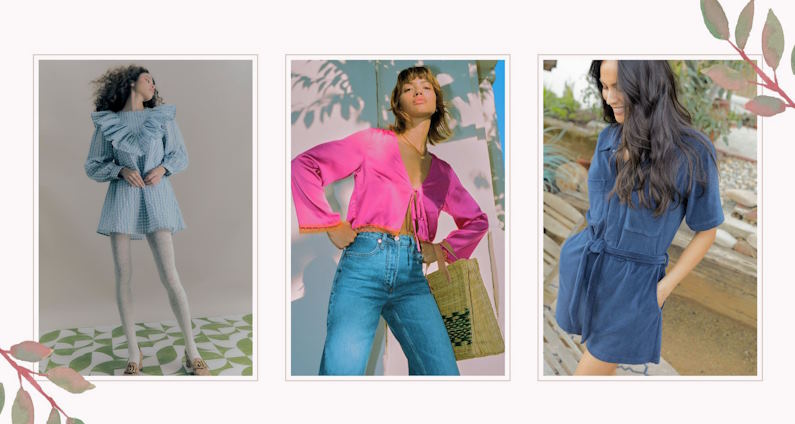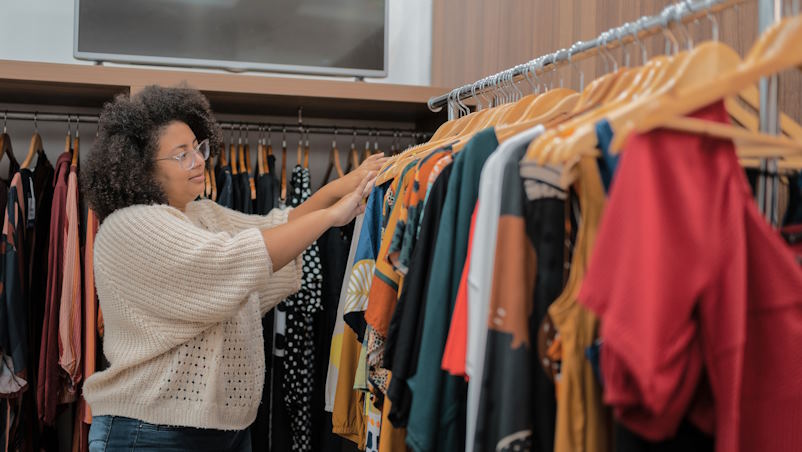The Comfort Equation: How Custom-Made Clothes Prioritize Wearability
From the stiff and confining garments of the past to the effortlessly fitting and flexible designs of the present, the journey of clothing’s evolution has been marked by an unwavering quest for comfort. As our understanding of human anatomy, material science, and design principles has deepened, so too has our ability to create garments that seamlessly embrace the contours of the body and adapt to its every movement. In this era of consumer empowerment and technological innovation, the realm of fashion is experiencing a paradigm shift, one that places personalization and individual comfort at the forefront.
The Science Behind Comfortable Clothing
Understanding human body dynamics: Comfortable clothing isn’t just about soft fabrics; it’s about understanding how the body moves. Scientific insights into human anatomy have revealed the intricate mechanics of our joints and muscles, guiding designers to create garments that complement natural motion. The ability to move without restriction is a key factor in feeling comfortable in what we wear.
Importance of fabric selection: The type of fabric can make or break the comfort of a garment. Fabrics with breathability and moisture-wicking properties ensure that sweat and heat are managed effectively. Additionally, materials with the right amount of flexibility and stretch allow clothing to adapt to body movements while maintaining their shape.
Ergonomic design considerations: It’s not just about the fabric – the design and construction of the garment play a pivotal role in its comfort quotient. Strategic seam placement and the elimination of rough edges reduce friction against the skin. Moreover, considering weight distribution in the design can result in a balanced feel, preventing undue strain on specific body parts.

Rise of Custom-Made Clothing
Technology’s role in the custom clothing industry: Advancements in technology have redefined the concept of custom-made clothing. 3D body scanning and measurements enable precise tailoring, ensuring a perfect fit. Virtual fitting rooms and augmented reality applications allow consumers to visualize how a garment will look and fit on their unique body shape before placing an order.
Personalization beyond aesthetics
Custom-made clothing is not merely about aesthetics; it’s about addressing individual comfort needs. Tailored fit has a profound impact on how a garment feels to the wearer. By accommodating specific body concerns, such as posture or body asymmetry, custom-made clothing enhances wearability on a personal level.
Sustainability and Longevity of Custom-Made Clothes
The contrast between fast fashion’s disposable mindset and the enduring value of custom-made garments is striking. Custom clothing encourages a deeper emotional connection, leading to longer garment lifespans. By investing in pieces that fit perfectly and reflect personal style, consumers reduce the cycle of constant replacements and contribute to a more sustainable fashion ecosystem.
Challenges and Future Possibilities
While the concept of custom-made clothing holds immense promise, challenges remain. Affordability and accessibility of personalized fashion can be barriers for many. Adapting designs to evolving trends and tastes without compromising on comfort poses creative challenges for designers. The integration of AI in design processes presents exciting opportunities for enhancing the custom clothing experience.

Brands Revolutionizing Wearable Comfort
The shift towards custom-made clothing is exemplified by brands that prioritize wearability. Athleisure brands cater to performance-driven comfort, offering versatile clothing that moves seamlessly with the body. Luxury fashion houses are embracing bespoke options, emphasizing individualized comfort alongside opulence. Direct-to-consumer models are democratizing comfort, making personalized clothing accessible to a wider audience.
The Psychological Impact of Comfortable Clothing
Beyond physical well-being, comfortable clothing has a profound psychological impact. When we feel good in what we wear, our confidence soars. Comfortable clothing can influence our mood and self-esteem, contributing to an overall sense of well-being and positivity.
Expert Interviews: Designers, Scientists, and Consumers
Insights from fashion designers shedding light on the importance of comfort-driven design strategies. Perspectives from scientists who study the connection between clothing and comfort, highlighting the scientific basis behind our perceptions. Testimonials from individuals who have experienced the transformative shift to custom-made comfort firsthand, offering a personal touch to the narrative.
Posts
Welcome to Rock Paper Nib!
Your ultimate destination for all things custom wear, style, and fashion. Discover personalized trends, expert tips, and unique insights into expressing your individuality through clothing. Join us on a journey of self-expression and fashion-forward inspiration. Dress like nobody else, because you’re not like anybody else!


